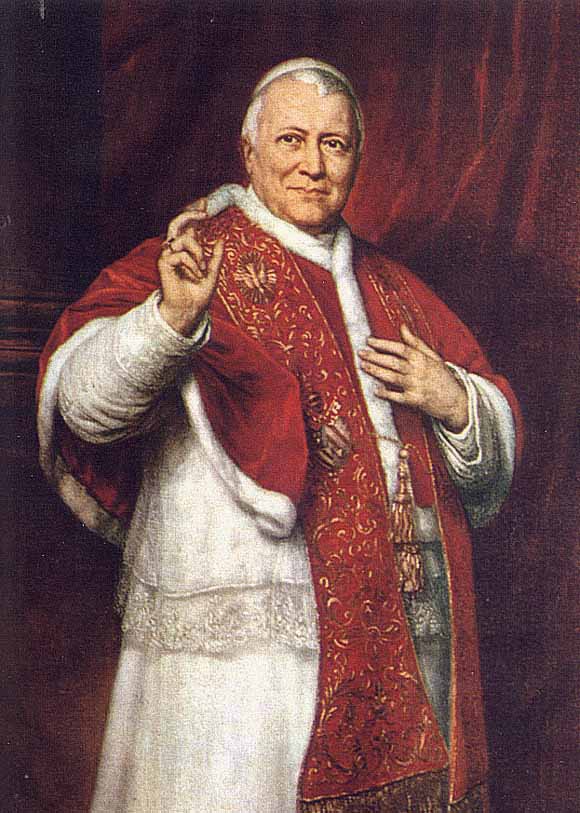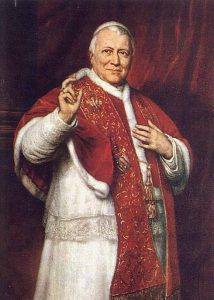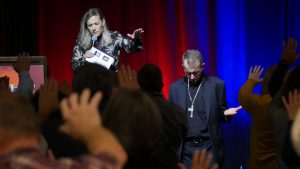
Question:

Is everything a pope says infallible?
Answer:
This is a great and timely question, in light of the documentary that was released about Pope Francis in October. That documentary included clips from a news interview that the Holy Father had given in 2019 on the topic of civil unions for same-sex couples. Much of the coverage of the Holy Father’s remarks, particularly in secular media, indicated that Pope Francis had changed the Church’s teaching.
This column won’t be getting into the details of questions about what he meant or why the Church teaches what she does about marriage (make sure and check out the online resources in the link below as some of those will address that topic). Instead, we’re going to look at the larger question of whether a pope can change Church teaching, and how papal infallibility fits into that.
It’s important to remember the nature of the teaching authority of the pope and those bishops in union with him. Jesus entrusted Peter and the other apostles with the responsibility of handing on and proclaiming His teachings to every generation. To ensure they would do so, Jesus did not rely on the Apostles’ own holiness or intelligence. Instead, He promised that He would give them the Holy Spirit to allow them to carry out that task of guarding and proclaiming His teachings.
So it was to the Apostles that Jesus gave this responsibility, and He promised that the Holy Spirit would guide them into all truth. They, in turn, handed on that authority to other men—the popes and the bishops—and they, too, were guided by the Holy Spirit to faithfully guard and teach what Jesus had taught to the Apostles.
What this means is when the pope and the bishops with him officially teach the faith, we can have confidence what they are teaching is true, and that it reflects what Jesus taught when He lived and taught 2000 years ago. We see this teaching authority exercised, for instance, in the formal teachings of ecumenical councils and things like the Catechism of the Catholic Church.
Among the Apostles, however, Peter had a special role as their leader, and to him and his successors—the popes—Jesus gave a special responsibility to teach not only for his local church, but for the universal Church. And because of this unique task which Peter and his successors (the popes) have been given, the Holy Spirit works in a special way to ensure that, in specific situations, what the pope teaches is completely without error.
This is what papal infallibility refers to. It means that when a pope formally defines a matter of church teaching, referring to something of faith or morality, he is protected by the Holy Spirit from teaching error. So whatever he says in this context has no error in it.
It’s important to note what papal infallibility does not mean. It does not mean that popes are sinless; that’s what “immaculate” means (as in “Immaculate Mary”). It doesn’t even mean that when he does teach infallibly, he does so in the clearest manner possible.
It also does not mean that everything a pope teaches is infallible. Again, it applies only when a pope is formally defining a matter of Church teaching. So with regard to Pope Francis’ interview, for instance, that was not a formal definition of Church teaching, and hence is not an instance of papal infallibility.
There’s another layer of complexity, however. The Church teaches that whenever a pope is teaching, he is exercising his teaching authority, and we are to presume the truth of what he is teaching. This applies to most papal documents and to formal addresses (speeches) that a pope gives on matters of faith or morality. Even though these are not instances of papal infallibility, we are to presume the truth of what the pope says as it relates to doctrine.
It’s important to note, though, that even this level of authority does not apply to everything a pope says. Even popes can have “personal” theological opinions, and those views, because they are not authoritative, are not binding on us to accept as true. Such would apply to things like media interviews, whoever the pope might be.
The papacy is a great gift from God to us. It’s important that we understand that gift accurately so that through our popes we can grow as authentically Catholic missionary disciples of Jesus Christ.
 Be sure to check out the additional resources at sfcatholic.org/answer. If you have a question you need an answer to, email rkranz@sfcatholic.org.
Be sure to check out the additional resources at sfcatholic.org/answer. If you have a question you need an answer to, email rkranz@sfcatholic.org.
Chris Burgwald holds a doctorate in theology and is the director of Adult Discipleship and Evangelization for the Diocese of Sioux Falls.


